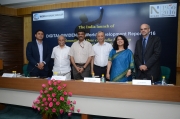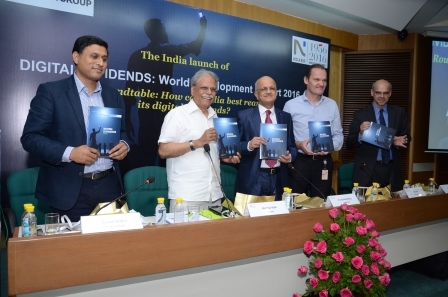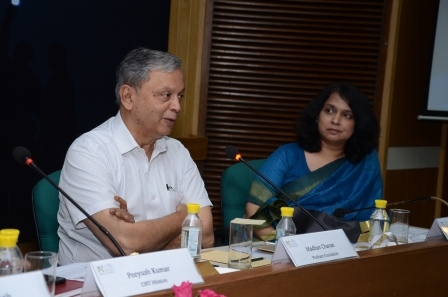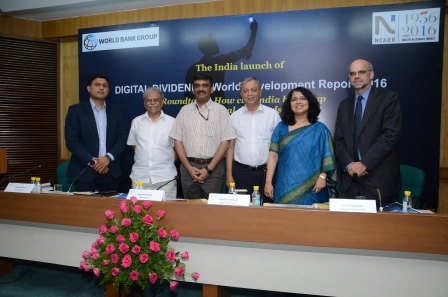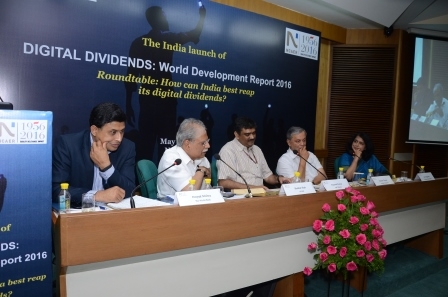NCAER and The World Bank co-hosted the India launch of the World Development Report 2016 on Digital Dividends, followed by a roundtable discussion on how to best speed up India’s digital transformation and reap the digital dividends of faster growth, greater opportunity and jobs, and better service delivery for India.
Dr Shekhar Shah, Director-General, NCAER & Mr Onno Ruhl, India Country Director, The World Bank delivered the welcome address. This was followed by a presentation by Dr Deepak Mishra & Dr Uwe Deichmann, Co-directors, WDR 2016, which provided an overview of the Report’s main findings and and how they might apply to India. Mr R Chandrashekhar, President, NASSCOM also shared his thoughts on the findings of the report.
Another highlight of the launch event was a presentation on the Krishna district in Andhra Pradesh that has been implementing digital technologies, including Aadhaar, for improving service delivery. Speaking on the occasion, Mr Ahmed Babu, Collector & District Magistrate, Krishna District & Mr Ragavan Venkatesan, Business Head, IDFC explained how through an electronic point of sale or e-POS model, Andhra Pradesh has imparted a great amount of incremental efficiency to the district’s public distribution system (PDS).
World Development Report 2016
The World Development Report (WDR) is the World Bank’s flagship publication, published annually since 1979. It focuses each year on a contemporary topic of policy interest to the international development community. The WDR 2016 expands our understanding of the impact of digital technologies on the lives of poor people in developing countries.
The WDR 2016 documents many profound and transformational effects of digital technologies that are boosting growth, expanding opportunities, and improving services. It also finds that the broader benefits have fallen short and are unevenly distributed. For digital technologies to benefit everyone, everywhere requires closing the remaining digital divide. But greater digital adoption will not be enough. The WDR 2016 argues that to get the most out of the digital revolution, countries also need to work on “analog complements”— strengthening regulations that enable firms to connect and compete, adapting workers’ skills to the demands of the new digital economy, and ensuring that institutions are more accountable.
Roundtable on “How can India best reap its digital dividends?”
India wrote one of the early success stories of the digital revolution when it became a global powerhouse for software development and information services. Its Aadhaar biometric digital ID system has become a model for many countries, helping governments to become more efficient and more inclusive in expanding services to those who have been left behind. But at the same time, India has the largest number of people unconnected to the Internet. And it has fallen behind other emerging market economies in producing internationally competitive ICT goods and global-scale internet companies.
To accelerate India’s digital transformation, the government has announced a range of new initiatives: Digital India; Make in India; Start-up India; and innovative applications of Aadhaar, such as the Jan Dhan-Aadhar-Mobile trinity and Digital Lockers. Indian industry has responded enthusiastically to these initiatives. How best can these and other initiatives make up for lost time and how can they best generate greater and more widely shared digital dividends—faster growth, more jobs, and better service delivery? Beyond catching up, how can these digital dividends allow India to leap frog in a variety of ways to deliver on the promise of opportunity and prosperity for all its citizens, particularly those who still remain poor in its urban and rural areas.
The Roundtable featured some of the country’s most influential thinkers on India’s digital future along with members of the WDR Team. The event was Web Streamed Live.






